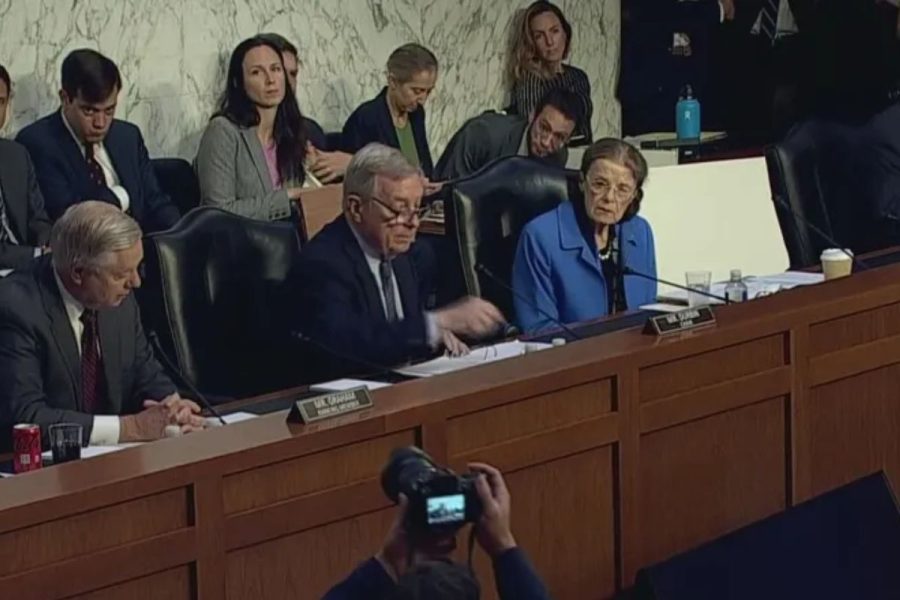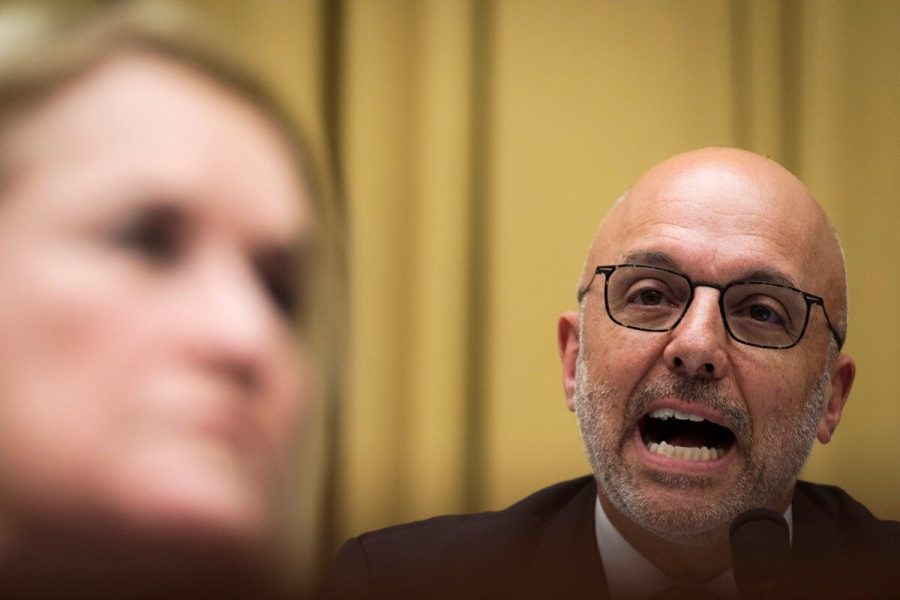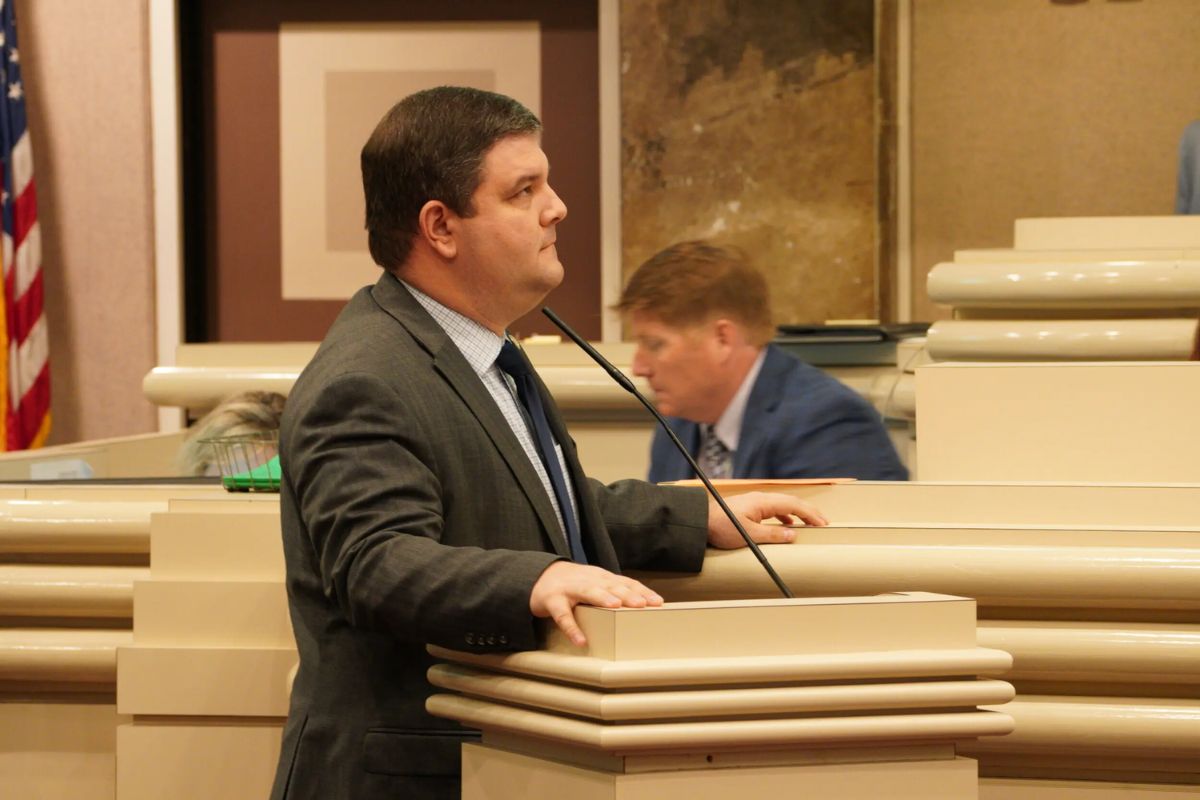House Ethics Committee Unveils Changing Bill: The House Ethics Committee’s recent announcement of a potentially transformative bill has sparked widespread interest and debate among lawmakers and constituents alike.
With the promise of bringing about significant changes, the proposed legislation has already elicited varied reactions from different stakeholders.
As discussions unfold, the bill’s implications for ethical standards within the House and its potential impact on future legislative proceedings remain key points of contention.
Stay tuned for further developments on this pivotal issue.
Alabama House Committee Holds Public Hearing
Has the Alabama House Ethics and Campaign Finance Committee recently held a public hearing to deliberate on proposed changes to the state’s ethics laws? Indeed, the committee, spearheaded by State Rep. Matt Simpson (R-Daphne), convened a crucial public meeting on Wednesday to address proposed modifications to the Alabama Ethics Act. This significant event marked a pivotal moment in the ongoing discussions surrounding ethics reform within the state.
During the committee meeting, various key stakeholders and experts gathered to deliberate on the proposed changes introduced by Rep. Simpson. The proposed alterations to the Alabama Ethics Act are poised to bring about substantial shifts in the state’s ethical landscape, potentially impacting how ethics violations are addressed and prevented moving forward.
The public hearing served as a platform for robust discussions and debates on the proposed changes, highlighting the importance of transparency and accountability in government practices. As the committee continues to navigate these proposed amendments, stakeholders and citizens alike await the outcomes that could shape the future of ethics laws in Alabama.
Ethics Commission Director Warns Against Simultaneous Consideration of Gambling Package
The Ethics Commission Director, Tom Albritton, has cautioned legislators against considering changes to the Alabama Ethics Act concurrently with deliberations on a gambling package during the current legislative session. Albritton emphasized the importance of maintaining the commission’s independence as a critical oversight mechanism within the system.
Here are three key points to consider:
- Preservation of Independence: Albritton stressed the necessity of safeguarding the Ethics Commission’s autonomy to effectively carry out its duties without undue influence from other legislative matters.
- Focus on Priority: Rewriting the ethics act while significant gambling-related measures are being deliberated may divert attention and resources from pressing issues that demand immediate resolution.
- Maintaining Integrity: Simultaneous consideration of these two complex topics could potentially undermine the transparency and integrity of the legislative process, raising concerns about conflicts of interest and ethical standards.
Albritton’s warning underscores the need for legislators to carefully navigate these intricate matters to uphold ethical standards and ensure responsible governance.

ALSO READ: “Surprising Move: Gov. Ivey Picks Judge Lewis for Court of Civil Appeals”
Details of Simpson’s Proposed Legislation
State Rep. Matt Simpson’s proposed legislation introduces new provisions for the director of the Ethics Commission, including a five-year term and a reappointment process subject to Senate confirmation. This bill maintains the current oversight structure of the Ethics Commission, which consists of five members serving five-year terms appointed by the Governor, Lieutenant Governor, and Speaker of the House. The focus of the proposed changes lies in enhancing the accountability and transparency within the Commission by establishing a clear term limit for the director and involving the Senate in the reappointment process.
The scheduled vote on the bill, which was initially planned for Thursday, faced a delay following a public hearing held on Wednesday. This decision indicates the significance of the proposed legislation and the need for thorough consideration before moving forward. The introduction of these new provisions marks a pivotal moment in the ongoing efforts to strengthen ethics oversight within the state government, signaling a commitment to upholding integrity and accountability in public service.
Divergent Views on the Proposed Changes
Amid the deliberations on State Rep. Matt Simpson’s proposed legislation to reform the Ethics Commission’s oversight structure, contrasting perspectives have emerged regarding the potential implications of the proposed changes, particularly concerning the regulation of gift-giving.
- Albritton’s Concerns:
- Albritton expressed worries that the proposed rewrite could lead to fewer restrictions on gift-giving.
- Simpson’s Defense:
- Simpson argued for a broader focus beyond statehouse employees, emphasizing the need to consider the impact on the approximately 300,000 individuals affected by ethics laws.
- Timing of Changes:
- Simpson defended the timing of the proposed changes, stating that it is always the right time to do the right thing. He also announced the postponement of the bill to allow committee members more time for review.
These divergent views highlight the complexity of the proposed legislation and the varying perspectives on how best to regulate gift-giving within the ethical framework. The ongoing discussions underscore the importance of careful consideration and thorough examination before implementing any significant changes to the existing ethics oversight structure.

Former Committee Chairman’s Perspective and Future Proceedings
Former Committee Chairman Mike Ball expressed reservations about the proposed bill’s overall impact, while also noting specific favorable elements within the legislation. Despite his opposition to certain aspects, Ball commended Rep. Simpson for sparking a crucial public debate on ethics reform. His nuanced perspective adds depth to the ongoing discussions surrounding the bill.
| Pros | Cons |
|---|---|
| Increased transparency | Potential bureaucratic delays |
| Enhanced accountability | Ambiguity in enforcement |
| Strengthened oversight | Lack of clear implementation |
| Clearer guidelines | Possible loopholes |
| Public trust rebuilding | Impact on smaller entities |
As the bill is set to resurface for further deliberation in the following week, Ball’s insights could play a pivotal role in shaping the future direction of the proposed changes. The upcoming proceedings promise to be a battleground of ideas, where differing viewpoints will be scrutinized in the quest for a more ethical legislative framework.
News in Brief
House Ethics Committee Stirs Controversy: The House Ethics Committee unveils a transformative bill, sparking debate among lawmakers. The proposed legislation’s potential impact on ethical standards and legislative proceedings triggers varied reactions. Meanwhile, the Alabama House Ethics and Campaign Finance Committee, led by Rep. Matt Simpson, holds a public hearing on proposed changes to the state’s ethics laws. The amendments aim to bring substantial shifts, emphasizing transparency and accountability. However, Ethics Commission Director Tom Albritton warns against simultaneous consideration of changes to the Alabama Ethics Act and a gambling package, emphasizing the need for focus and maintaining integrity. Divergent views emerge on Simpson’s proposed legislation, with concerns about gift-giving regulations. Former Committee Chairman Mike Ball’s nuanced perspective adds depth to ongoing discussions. The upcoming week promises further deliberations on the bill’s future.

